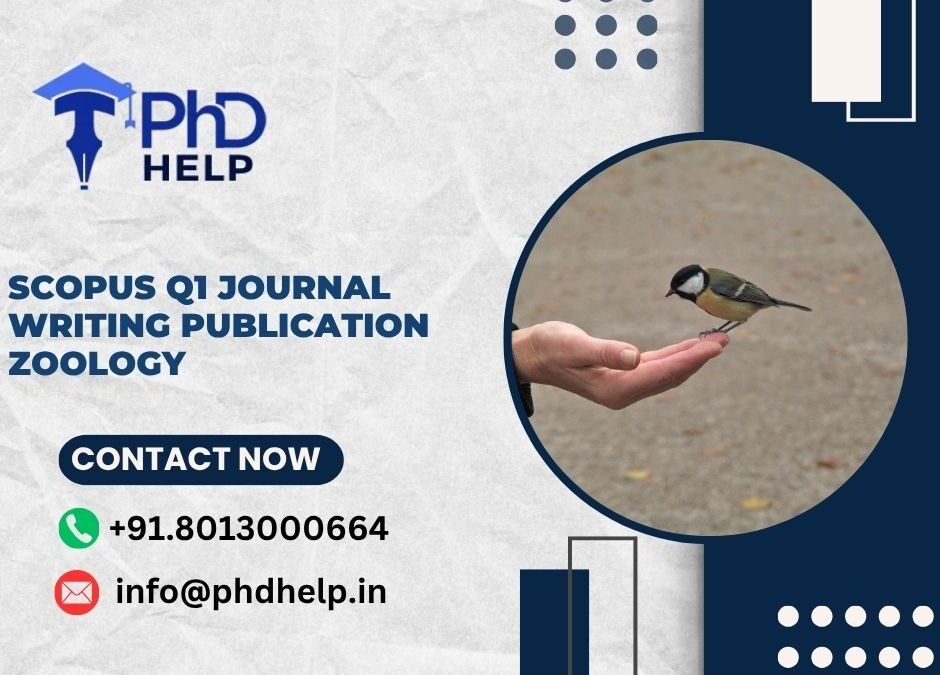SCOPUS Q1 journal writing publication Zoology
SCOPUS Q1 journal writing publication Zoology. Publishing in a SCOPUS Q1 journal in Zoology represents a benchmark of academic excellence, reflecting pioneering research in animal biology, ecology, and conservation science. With increasing global attention to biodiversity, wildlife protection, and ecological sustainability, high-impact zoological research necessitates precise writing, a structured methodology, and strategic submission to top-tier journals. SCOPUS Q1 journals provide maximum visibility, academic recognition, and citation potential, making them the ideal platform for zoology researchers aiming to influence the scientific community.
Understanding SCOPUS Q1 Journals in Zoology
SCOPUS Q1 journals rank within the top 25% of journals in their subject area based on metrics such as impact factor, citation rate, and academic influence. For zoological research, these journals cover topics including animal behavior, physiology, taxonomy, wildlife conservation, and molecular zoology. Publishing in a Q1 journal enhances an author’s credibility, ensures the research reaches global experts, and increases the likelihood of collaborative opportunities across academia and industry.
Manuscript Preparation: Structuring Zoological Research
Effective SCOPUS Q1 journal writing in Zoology starts with meticulous manuscript preparation. Authors should ensure a clear, concise title, an informative abstract, and structured sections including Introduction, Materials and Methods, Results, Discussion, and Conclusion. Sections must emphasize scientific rigor, replicable experiments, and relevance to current zoological challenges, such as endangered species management, ecosystem conservation, or climate change impacts. Figures, tables, and high-resolution images should be clearly labeled and integrated seamlessly into the manuscript.
Literature Review: Establishing Context and Significance
A robust literature review demonstrates awareness of prior research, identifies knowledge gaps, and establishes the importance of the study. In zoology, this may include recent studies on animal physiology, behavioral ecology, habitat restoration, or genetic diversity. References should be recent, relevant, and high-impact, adhering strictly to the target journal’s citation format to enhance credibility and scholarly depth.
Scientific Writing and Language Precision
SCOPUS Q1 journals demand scientific writing that is precise, formal, and objective. Zoological manuscripts should use clear language, avoid ambiguity, and maintain consistency in terminology. Active voice enhances clarity, while proper use of technical terms ensures the manuscript communicates complex biological processes effectively. Professional editing services can refine language, improve readability, and align the manuscript with international academic standards.
Data Presentation and Statistical Analysis
Accurate data presentation and rigorous statistical analysis are essential for high-impact zoological publications. Results should be presented via well-organized tables, graphs, and photographs, emphasizing significant findings without overcomplicating the data. Statistical methods must be clearly described, including software, sample sizes, and significance levels. Transparency and reproducibility are crucial, as SCOPUS Q1 journals prioritize robust and verifiable scientific research.
Peer Review Readiness: Strengthening Acceptance Chances
Preparing a manuscript for peer review requires anticipating reviewer expectations. Manuscripts must address potential methodological concerns, ensure ethical compliance, and highlight novelty in zoological research. Pre-submission reviews by colleagues or professional editors can identify gaps, correct errors, and improve manuscript quality, increasing the likelihood of acceptance in top-tier journals.
Journal Selection: Targeting the Right SCOPUS Q1 Platform
Selecting the appropriate SCOPUS Q1 journal is critical for research impact. Consider the journal’s scope, audience, impact factor, and alignment with your research domain. High-impact zoology journals often focus on wildlife biology, animal physiology, molecular zoology, or ecological modeling. Proper journal selection maximizes the visibility and citation potential of your research, ensuring it reaches the right scientific audience.
Submission and Follow-Up Management
Efficient submission management streamlines the publication process. Professional services ensure manuscripts adhere to journal guidelines, references are formatted correctly, and supplementary materials are included. Editors handle communications with the journal, track revisions, and provide support responding to reviewer comments. Effective submission management reduces delays and increases the chance of successful publication.
Ethical Compliance in Zoological Research
SCOPUS Q1 journals maintain high ethical standards. Authors must ensure proper citation, avoid plagiarism, and adhere to guidelines for animal research, field studies, and ecological ethics. Transparent and responsible conduct enhances credibility, fosters trust, and contributes positively to the global zoological knowledge base.
Post-Publication Visibility and Impact
Post-publication strategies enhance the reach and impact of your research. Indexing in SCOPUS, Web of Science, and other databases ensures accessibility to the global scientific community. Authors can promote their work through conferences, social media, and academic networks to increase citations and engagement. High-impact dissemination ensures that zoological research informs conservation strategies, ecological policies, and future scientific studies.
Conclusion: Excellence in Zoological Publishing
Publishing in SCOPUS Q1 journals in Zoology is a pathway to international recognition, academic credibility, and meaningful scientific impact. From manuscript structuring and literature review to statistical analysis, ethical compliance, and submission management, each step contributes to successful publication. By following best practices in high-quality journal writing, zoology researchers can ensure their findings reach a global audience, advance scientific knowledge, and contribute to the conservation and understanding of animal life.
SCOPUS Q1 journal writing publication in Zoology is essential for researchers seeking to establish authority, enhance visibility, and make a lasting impact in animal sciences.
Thank you for read our blog “SCOPUS Q1 journal writing publication Zoology”
Also read our more BLOG here
For PhD writing help Contact: +91.8013000664 || info@phdhelp.in

